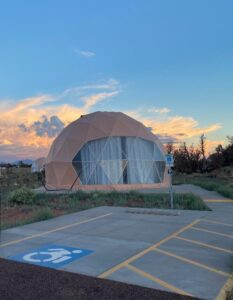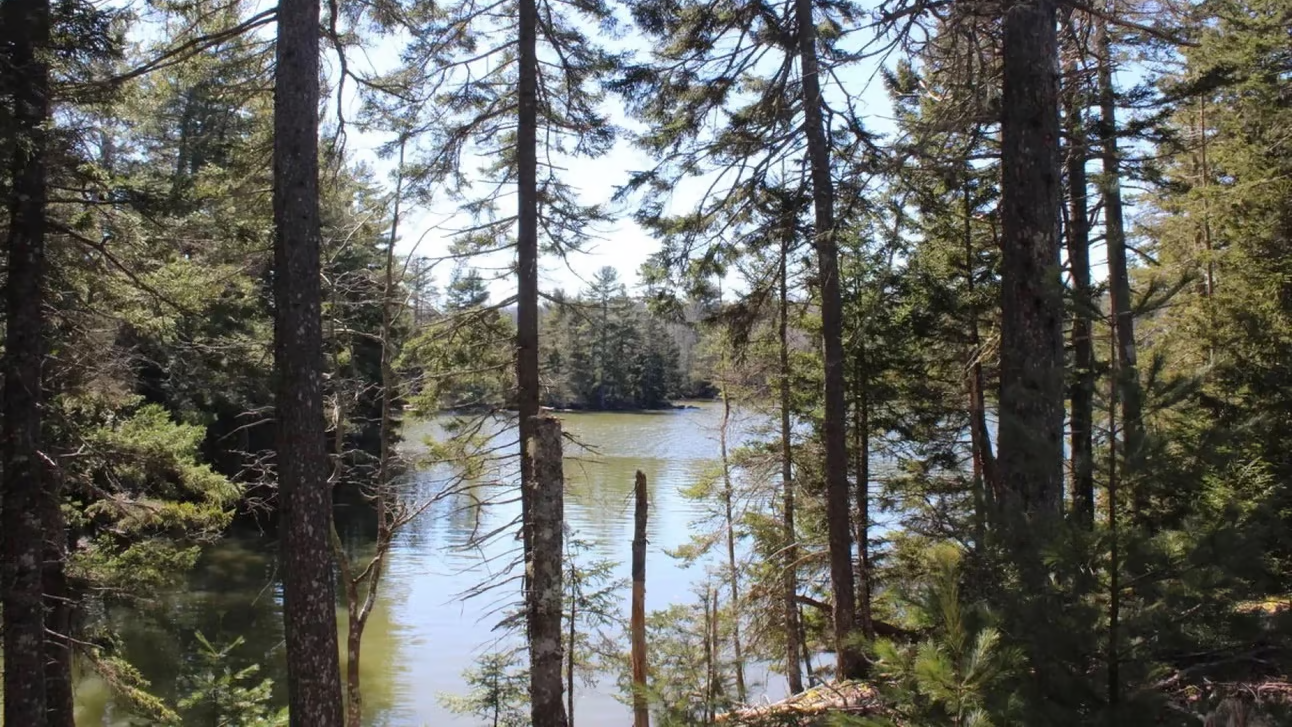Residents of Lamoine voted overwhelmingly last week to ban hotels, motels, glampgrounds and resorts town-wide, nearly a year after an Arizona-based company floated a proposal to erect more than a hundred geodesic domes on the shores of Partridge Cove, a wooded area roughly 25 minutes outside the heart of Acadia National Park.
“We did this work to protect Lamoine from overdevelopment and preserve its greatest asset — its rural nature and beauty,” wrote Amy Morley in a Facebook post on the group Growing Lamoine Responsibly, which had organized in response to the plans. “There are other things that can be looked at to continue in this same direction in the future.”
The proposal, put forward by Clear Sky Resorts, which operates a glampground near the Grand Canyon, worried many locals after it was first put forward last spring.
The town temporarily blocked the plans with a moratorium in August; just before the vote last week, local conservation organization Frenchman Bay Conservancy announced that it closed on part of the parcel where the resort was slated to be built, effectively ending the plans.
“It is gratifying to see that the groundswell of opposition to the proposed glampground has yielded a significant land conservation achievement, thanks to FBC,” said Larissa Thomas, Chair of the Lamoine Conservation Commission, in a press release.
The vote during town meeting last Saturday generated just a few minutes of discussion, with one resident wondering whether she would still be able to have her grandkids camp in her yard (yes, “as long as you don’t put a septic system and a toilet in the grandkids’ tent, you’re good,” replied Lamoine Administrative Assistant Stu Marckoon), and another whether the ban extended to short-term rentals (no).

Glampgrounds — where tents can go for upward of $1,000 per night and include private decks, hot showers and flush toilets — have generated considerable controversy in the area around Acadia National Park in recent years, as residents in rural areas worry about fire safety, wastewater treatment, noise and traffic.
They also have created complications for local officials, since they often fall into a new regulatory category — not quite a campground, not quite a hotel — for which many communities have yet to develop ordinances, with some even wondering how to assess the canvas tents for tax purposes.
Proponents of glamping see it as a way to expand camping beyond the traditional market, including to those who may have mobility issues but want the experience of sleeping outside under the stars.
The ban in Lamoine comes as towns around Acadia National Park struggle to balance tourism with quality of life and the needs of local residents. In recent years, visitors have been increasingly venturing away from the hub of Bar Harbor (where I live) onto the “quiet side” of Mount Desert Island and across the bridge, to surrounding towns including Lamoine, Surry and Ellsworth.
While many welcome the increase in tourism dollars, the shift has also come with pushback from residents who want to preserve the rural nature of their towns.
“This is setting a precedent for more campgrounds, more glamping resorts,” said a speaker at a meeting in Lamoine in August, to an outburst of applause. “Do we want to become Trenton and do we want to become Mount Desert Island, Bar Harbor? Most of us don’t even want to go to Bar Harbor anymore.”







